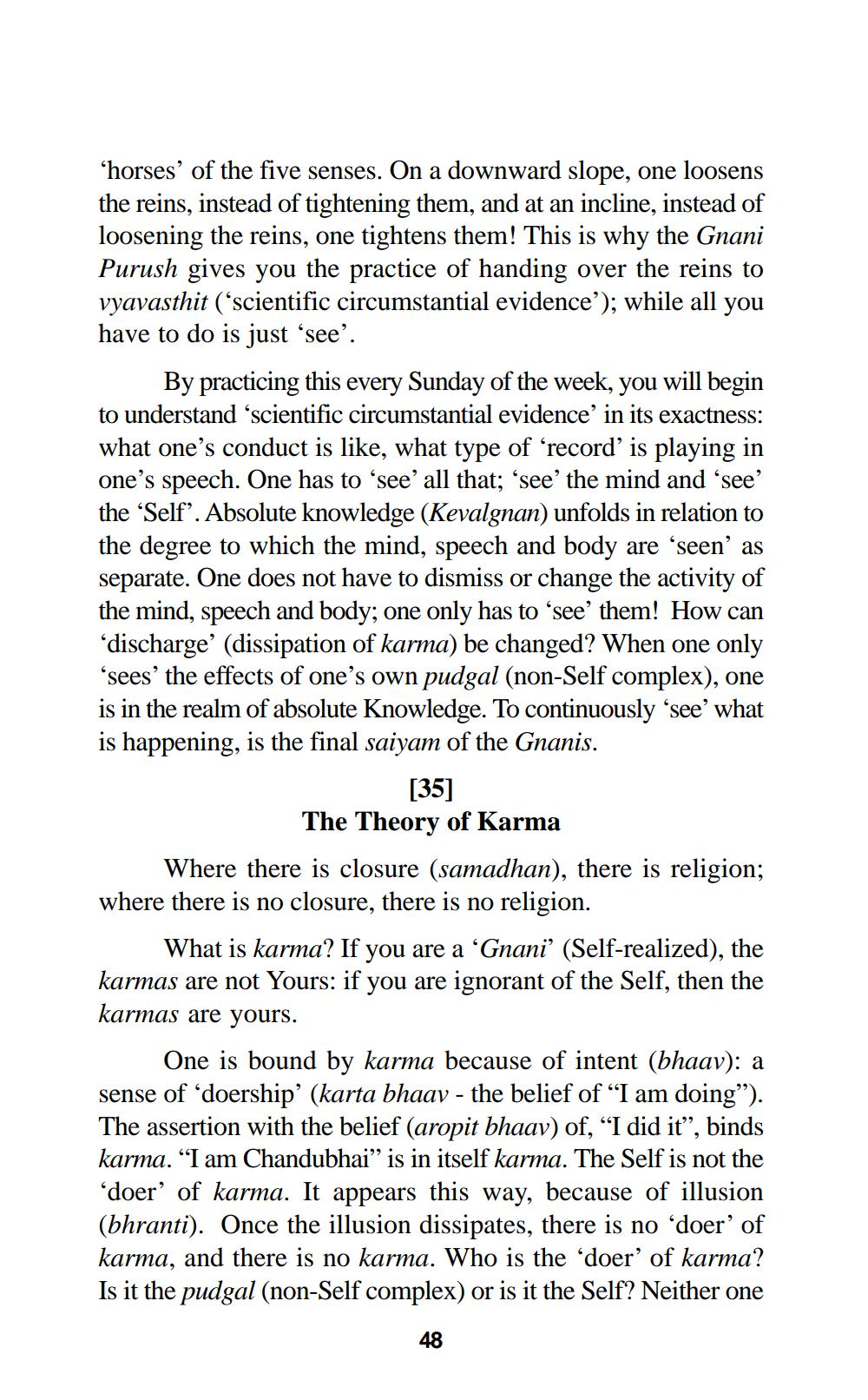________________
'horses' of the five senses. On a downward slope, one loosens the reins, instead of tightening them, and at an incline, instead of loosening the reins, one tightens them! This is why the Gnani Purush gives you the practice of handing over the reins to vyavasthit ('scientific circumstantial evidence'); while all you have to do is just 'see'.
By practicing this every Sunday of the week, you will begin to understand 'scientific circumstantial evidence' in its exactness: what one's conduct is like, what type of 'record' is playing in one's speech. One has to 'see' all that; 'see' the mind and 'see' the 'Self'. Absolute knowledge (Kevalgnan) unfolds in relation to the degree to which the mind, speech and body are 'seen' as separate. One does not have to dismiss or change the activity of the mind, speech and body; one only has to 'see' them! How can 'discharge' (dissipation of karma) be changed? When one only 'sees' the effects of one's own pudgal (non-Self complex), one is in the realm of absolute Knowledge. To continuously 'see' what is happening, is the final saiyam of the Gnanis.
[35]
The Theory of Karma
Where there is closure (samadhan), there is religion; where there is no closure, there is no religion.
What is karma? If you are a 'Gnani' (Self-realized), the karmas are not Yours: if you are ignorant of the Self, then the karmas are yours.
One is bound by karma because of intent (bhaav): a sense of 'doership' (karta bhaav - the belief of "I am doing”). The assertion with the belief (aropit bhaav) of, "I did it”, binds karma. "I am Chandubhai" is in itself karma. The Self is not the 'doer' of karma. It appears this way, because of illusion (bhranti). Once the illusion dissipates, there is no 'doer' of karma, and there is no karma. Who is the 'doer' of karma? Is it the pudgal (non-Self complex) or is it the Self? Neither one
48




